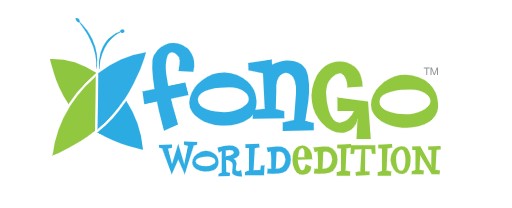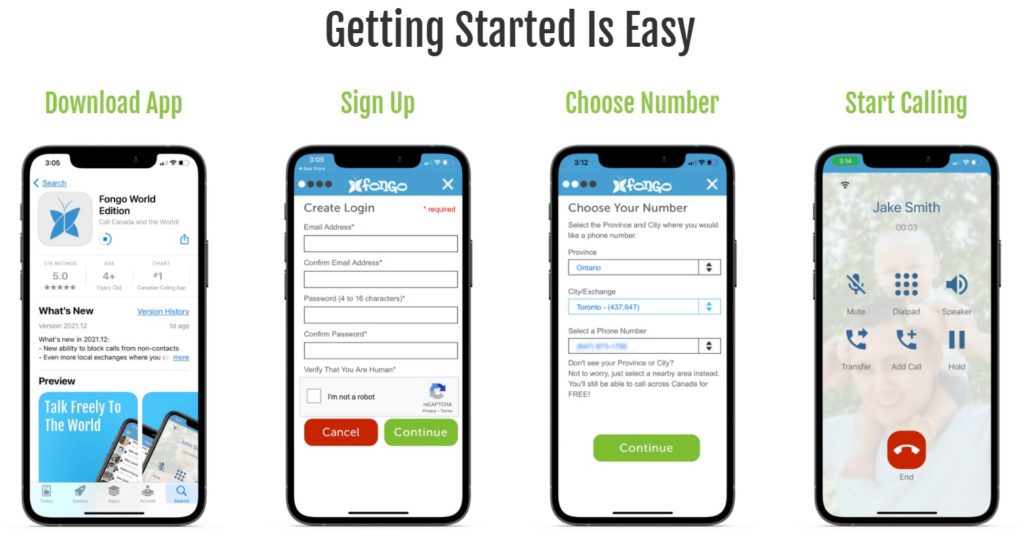Fongo World Edition: Get a Canadian Phone Number While Living Abroad
By William Urbanski
Most smartphone apps are hot garbage. If they are not time-wasting and brain-cell-dissolving games, they are so-called social media platforms or applications that provide little value and even complicate our lives. Take, for example, the various chat programs that purportedly facilitate communication but really just lead to people sending copious and unnecessary emojis throughout the day.
But every once in a while, an app comes along that cleverly leverages technology to provide solutions that would otherwise be inconceivable. Fongo World Edition is just such an app, and if you are a Canadian living in Gwangju, or anywhere in Korea, you need to start using it.
A Brief History of Phones in Canada
Many moons ago when I was growing up in Canada, virtually all houses still had landlines. I know, it sounds weird, but believe me, it is the truth. Landlines had many advantages, such as, you know, having a telephone in your house, but also came with many restrictions. As well, the telephone companies, which had a virtual monopoly at the time, were not exactly known for their excellent customer service acumen and flexible contracts.
It may seem like a pretty obvious thing to say, but having a home phone number was basically a requirement for, well, everything, and especially things like opening a bank account. Around the turn of the century, most people realized pretty quickly that shelling out the big bucks for a cell phone (that could be used as a person’s primary number) was basically a million times better than shelling out the big bucks for a phone that only stayed in one place. That is why even though landlines in Canada definitely still exist, when it comes to having a phone number attached to your name, most people opt to have a smart phone and only a smart phone.
Coming to Korea
As many people reading this will undoubtably understand, after taking the plunge and moving to Korea, setting up a phone is one of the first orders of business. There are, of course, various options, all of which pretty much do the exact same thing, and most expats have few problems with whatever system they choose. This is all well and good, but there are many occasions in which a person should or must be able to provide a contact number in one’s home country. As a person stays longer in Korea, it may become difficult to find an appropriate phone number to use when needed. For example, many expats may not be able to list their family’s home phone number simply because many households simply do not have them anymore.
Banking and Two-Factor Authentication in Canada
One of the most important reasons why a Canadian expat may need to provide a Canadian contact number is to maintain their bank account. Increasingly, Canadian banks are requiring two-factor authentication to log into online banking (or at least some functions of it such as making transfers). Some banks require a dedicated non-free email account (read: not Gmail), but others require either a Canadian landline or Canadian cell phone number that they can call or send a verification code to that allows a person to sign in. This, of course, creates a massive logistical problem for the expat who, by definition, is not in the country.
Now, of course, there are some clunky and very inconvenient solutions to this problem, such as listing a trusted friend or family member’s phone number as your own and then getting them to immediately text you the code within a short window of time (usually less than ten minutes). This approach, besides being a massive pain for everyone involved, is also rife with security risks. The best approach would be to have one’s own Canadian phone number that could be used to make calls as well as send and receive text messages from right here in Korea. And this is the exact service that Fongo World Edition provides easily, securely, and affordably.

Fongo
Fongo got its start as an alternative phone service for those who needed a phone number but were fed up with the big Canadian phone companies’ nonsense or otherwise could not get a phone contract (a situation that is not as strange as it seems – lots of low-income people or those who have not yet established a credit record could run into trouble getting a phone). Since most people nowadays have a smartphone and can connect to Wi-Fi at least some of the time, Fongo realized that entering into a restrictive phone contract was not the necessity it once was. By downloading the app, a person can get their own local Canadian phone number that works just like a regular phone number would. For a more robust package that includes texting, a person can buy a very reasonable monthly subscription.
Outside of Canada, an expat can use Fongo World Edition to achieve the same thing. While not free, the cost is excellent, especially given the quality of service and the logistical nightmares it solves. To download the app, users must pay a one-time fee of about 6,000 won. Six months of unlimited Canada texting costs a paltry 15,000 won. There are also options for international texting and calling.
For my purposes, I am happy to report than when it came to receiving my bank’s verification code, this system worked with zero problems. As an added bonus, now all my friends back home can just call me on my local Toronto phone number and it is routed to my smart phone here in Korea just like magic.

Other Services and Conclusions
If you are not Canadian and are interested in a comparable service, there are a number of others available, but unfortunately none that are quite as convenient as Fongo. Skype allows users to get their own phone number, but they must provide an American phone number to get set up. Similar conditions apply to Google Voice. There are actually all sorts of virtual phone number providers, and if you do your research, you can find one that meets your needs.
Digital technology is something that is supposed to make our lives easier and not just fill up our time with freemium games and TikTok videos of people carving up coconuts. Fongo World Edition is a relatively simple app that uses existing technological infrastructure to provide a novel solution to a complicated problem. What a time to be alive!
The Author
William Urbanski is the managing editor of the Gwangju News. He is married and uses chopsticks quite well. Instagram: @will_il_gatto
All pictures via www.fongo.com
Main photo by Jonas Leupe on Unsplash



